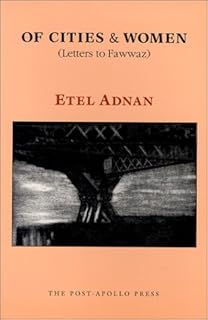 By Rigoberto GonzalezFour Way Books 2013
By Rigoberto GonzalezFour Way Books 2013
Review by Luis Martinez
An imagination unlike a kite, unmoored. In Unpeopled Eden, Rigoberto Gonzalez’s poems are surreal, visceral, and most of all, important—not just for the reader but for American poetry— they root and uproot so much they’ll leave the reader asking if they themselves are displaced. A wide-ranging and fearless collection, where we see U.S.-Mexico bordercrossers, a gay man asking his dead father for acceptance, and a brother looking for his lost brother. Here, a young writer will receive important and sought permission to speak and write on subjects he or she might not always see; to write about home, family, the personal. Even in its most austere moments, Gonzalez’s bravery exudes, as we see in a section of a list poem titled, “things that forget their shapes,” which includes: snakes, beddings, clothes, an orange, memory. William Carlos Williams says, “It is difficult/ to get the news from poems/ yet men die miserably every day/ for lack/ of what is found there.” I think some of us make it incredibly difficult to get magic from life. We dismiss it. Abandon it. The great imagery in this book will force one to look for our imagination as if it were something we’d put away in a drawer. Though this is an insistent and successful testament to the reoccurring tragedies that occur on the open wound that is the border, this is not as Juan Felipe Herrera says, “a cultural anthology.” This invites everyone.
In “Unpeopled Eden,” the title sequence and perhaps the best of this collection, tells the story of the horrible deportation plane crash where 32 were killed. Gonzalez pays special attention to how only 4 of the 32 victims were named by media reports, while the others were simply labeled, “deportees,” marking it as an untold story. Earlier in the sequence, after an immigration raid, the fruit of an apple tree “lies flung like the beads from/ a rosary with a broken string,” and, “A radio without paws… cannot claw/ its chords to end its suffering.” In these moments of sheer brutality, we witness Gonzalez crafting music out of incorrigible suffering. He looks at the ugly and asks us to look again. Gonzalez caresses us, lures us to his page, points our chins to his words, and says, “look there, I dare you to eat.” At the close of the sequence, the speaker sees patient vultures waiting for the fruit to rot— pointing the finger at the reader, asking if we too will wait.
Gonzalez turns the stone of immigration and gives light to a different face, one that isn’t always explored: the abandonment of family members, especially women, as their husbands are forced to leave them in search of a better life. In one of the most startling poems, “In The Village of Missing Fathers,” we see the abandoned left to find a means:
in the village without handsome
men: suddenly they wear the shoes
that lose their way. Some say
they journey North to waste
their days as kitchen slaves. Some say
they trade their organs for quick pay
After shocking actions, they look to be bandaged, not fed, as we see in the end of the poem, where Gonzalez’s poetry shakes us till unpredictability has a new meaning:
and that their shame means begging
on the city streets for gauze or cotton,
stitches or thread, to heal their surgeries
and stand upright again without
rattling like coins inside a cup.
Then we see his range as he writes about sexuality, in “Mortui Vivos Docent.” The speaker is able to speak freely about his sexuality to his father only because the latter is no longer living:
… an angry father come to claim his child.
He did not catch me then, but he caught me
walking home, my knees still numb from dancing
with the men who love their mamacitas pink
An incredibly important poem in macho Latino culture, in all cultures, spaces where we need these poems:
… So, papi, keep your only son holy as you stuff
me in the trunk: I’m wearing mother’s blouse, my mother’s skirt.
Raw and powerful, Gonzalez makes you go back and reread the poems again and again. It is hard to read this book without pausing and wanting to start one’s own poems. Lines like “Newspaper boats on the puddle/ are the only mystery: they refuse/to sink despite the heavy dream/ of travel…” and, “A thread of hair pretends to be/ a crack and sticks to glass …” make the reader grab a pen and poke a hole on the page, wall, window, ceiling to let in more lyric, more magic. A remarkable book by an important voice.
___________________________________
Rigoberto Gonzalez is the author of Unpeopled Eden (Four Way Books, 2013), Black Blossoms (Four Way Books, 2011), Other Fugitives and Other Strangers (Tupelo Press, 2006), and So Often the Pitcher Goes to Water until It Breaks (University of Illinois Press, 1999). He is also the author of bilingual children’s books, a book of short fiction, three books of nonfiction, and three novels. He is also an editor and book critic. He was born in Bakersfield, California and raised in Michoacan, Mexico.
Luis Martinez spent part of the summer at the Bucknell Seminar for Younger Poets and is the recipient of an Academy of American Poets Prize. He lives in San Francisco.

















 The Mystery of the Hidden DriveyJennifer L. Knox
Bloof Books, 2010
The Mystery of the Hidden DriveyJennifer L. Knox
Bloof Books, 2010 The Window Wide Open: A Dialogueon Etel Adnan’s Of Cities & Women
The Window Wide Open: A Dialogueon Etel Adnan’s Of Cities & Women People Are Places Are Places Are Peopleby Jeff Alessandrelli
Imaginary Friend Press, 2013
People Are Places Are Places Are Peopleby Jeff Alessandrelli
Imaginary Friend Press, 2013